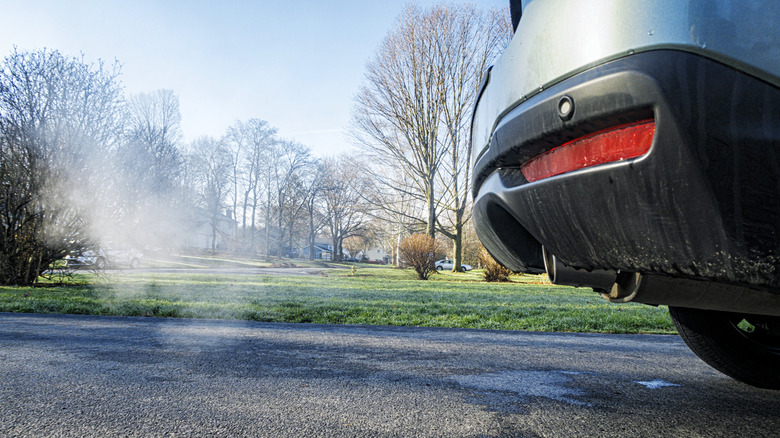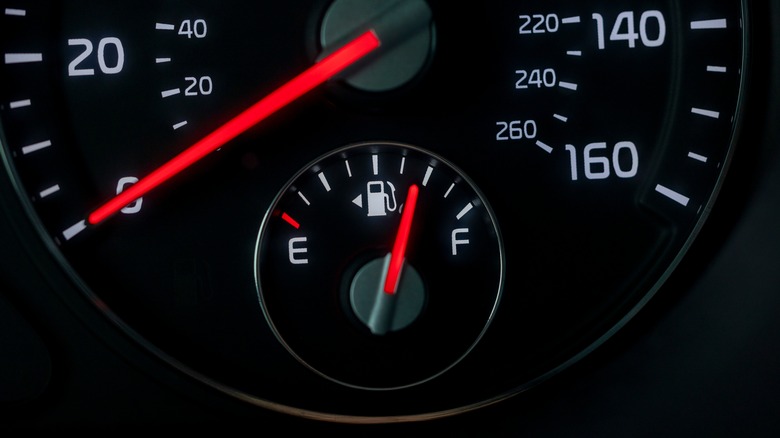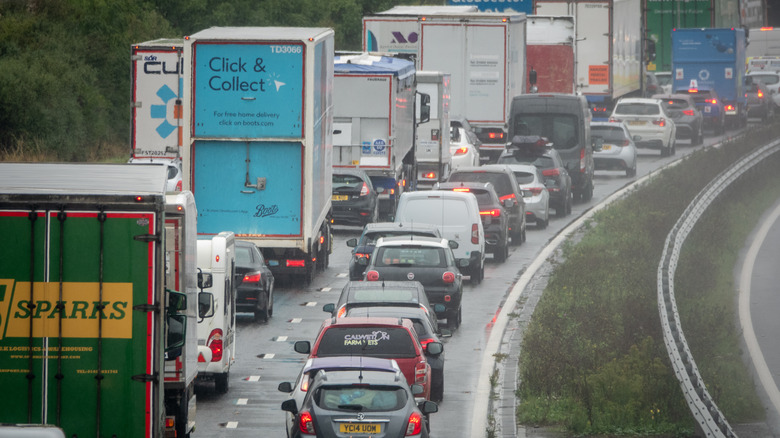How Much Gas Does Idling An Engine Use?
When you were first learning how to drive a car, did you receive a particular warning from your instructor, or perhaps a friend or familiar member? Specifically, did they warn you not to leave your car idling for long stretches of time, as it would unnecessarily burn up fuel from your tank? If nobody has clarified for you since then, allow us to be the first: it's quite true.
Leaving your engine idle for long stretches of time, whether you're just lazing about in your driveway waiting for the engine to warm up or stopped in gridlock traffic on the highway, will very gradually drain down your reserves of gasoline. While idling isn't likely to completely drain out your tank at the same rate that regular driving does, it can have a tangible impact on your overall gas mileage, and according to studies, the many drivers of the United States actually lose billions of gallons of gas to unnecessary idling on a regular basis, making it one of the least fuel-efficient things you can do in your car.
Why does idling use up fuel?
You'd be forgiven for thinking that, as long as you're not actively revving the engine on your car, you're not actually wasting any fuel, but sadly, this isn't the case. There's a big difference between an engine that's idling and an engine that's off. When an engine is all the way off, none of its processes are running. The pistons in the cylinders are completely stopped and no energy is being generated.
When an engine is idling, on the other hand, the engine is still running, just very slowly. While you may not be using the same amount of gas as you would while driving, piston strokes are still occurring, consuming gas all the same. You can't generate energy for free, unfortunately, even if you're not actively using it.
Idling wastes less gas than you'd think, but more than you'd hope
If you were to leave your car's engine idling for a long stretch of time, how much fuel would you waste, exactly? Based on information gathered by the United States Department of Energy in 2015, while you're not burning an entire tank's worth of fuel just sitting there and doing nothing, you're not exactly getting off scot-free either. According to the data, idling in a compact sedan with a 2.0-liter engine wastes about 0.16 gallons of fuel per an hour of idling. That number increases to a little less than 0.4 gallons of fuel in a large sedan with a 4.6-liter engine, and reaches its peak with a medium-heavy truck burning a little over 0.8 gallons of fuel. By the DoE's estimates, the cumulative fuel loss from idling passenger cars, light-duty trucks, and medium-to-heavy-duty trucks around the United States totals over 6 million gallons annually.
By the way, in case you were thinking idling w as more fuel-efficient than restarting your engine, think again. According to additional data gathered by the DoE in 2022, idling your car for about 10 seconds actually wastes more fuel than stopping and restarting the engine, 11.3 cubic centimeters versus 10.3 cubic centimeters respectively. If you're going to be hanging around in the same spot for a while and won't need to make a quick move when it's time to go, do yourself and your car a favor and just cut the engine.


